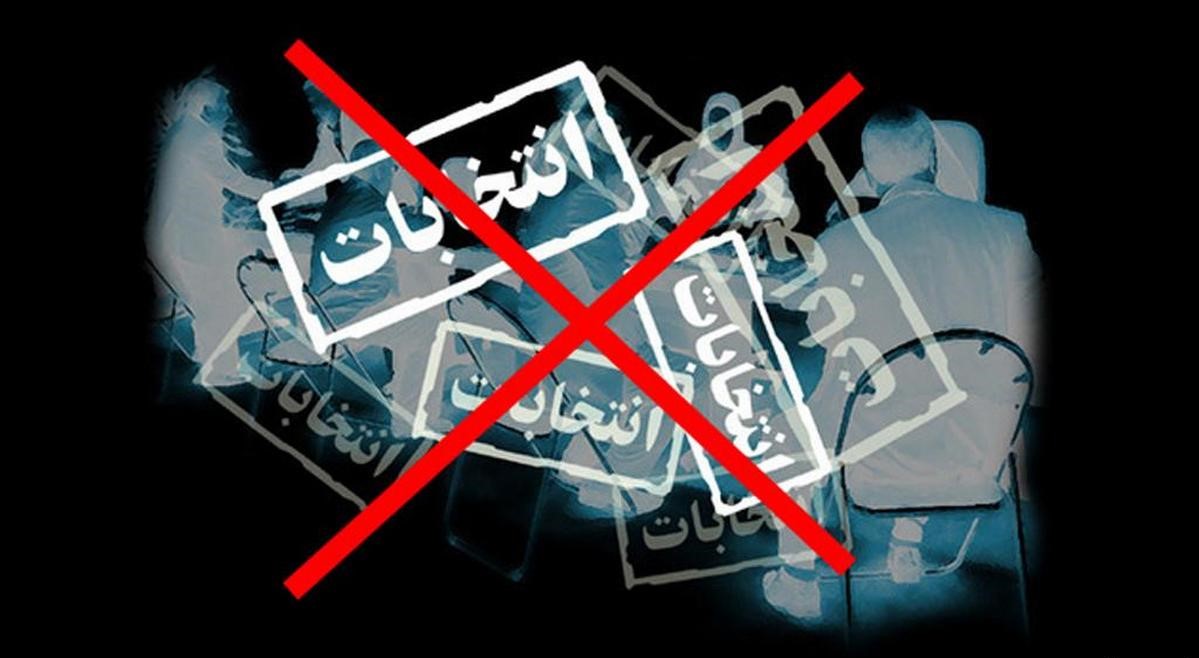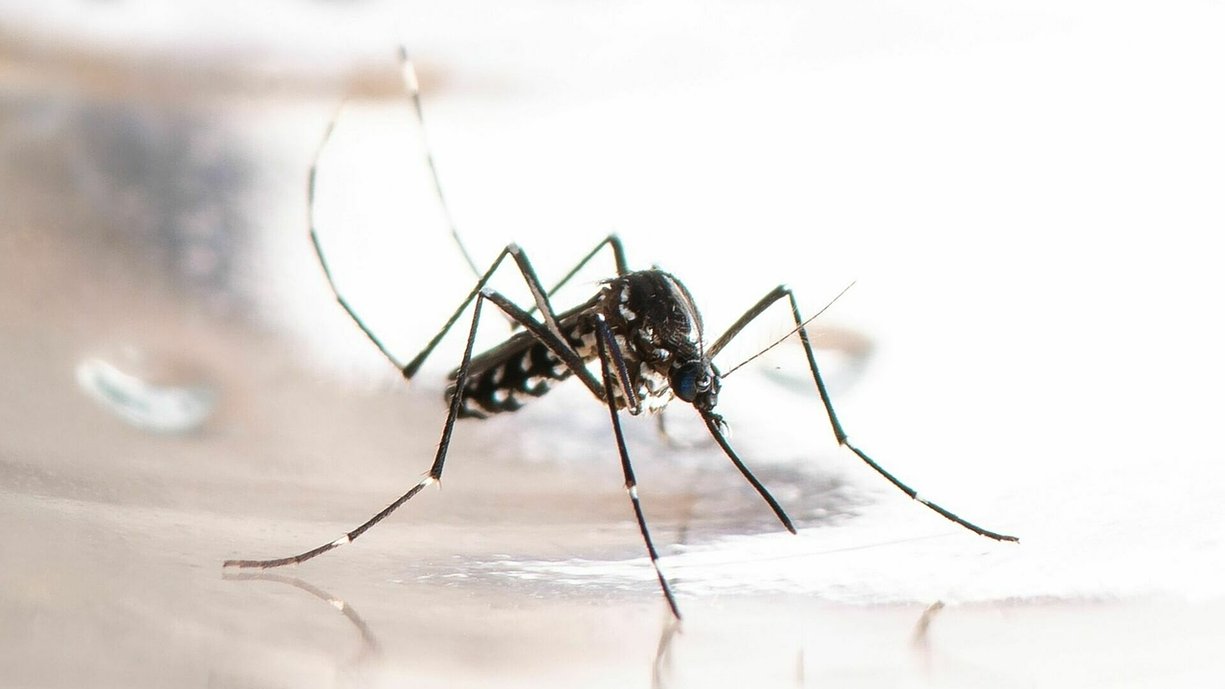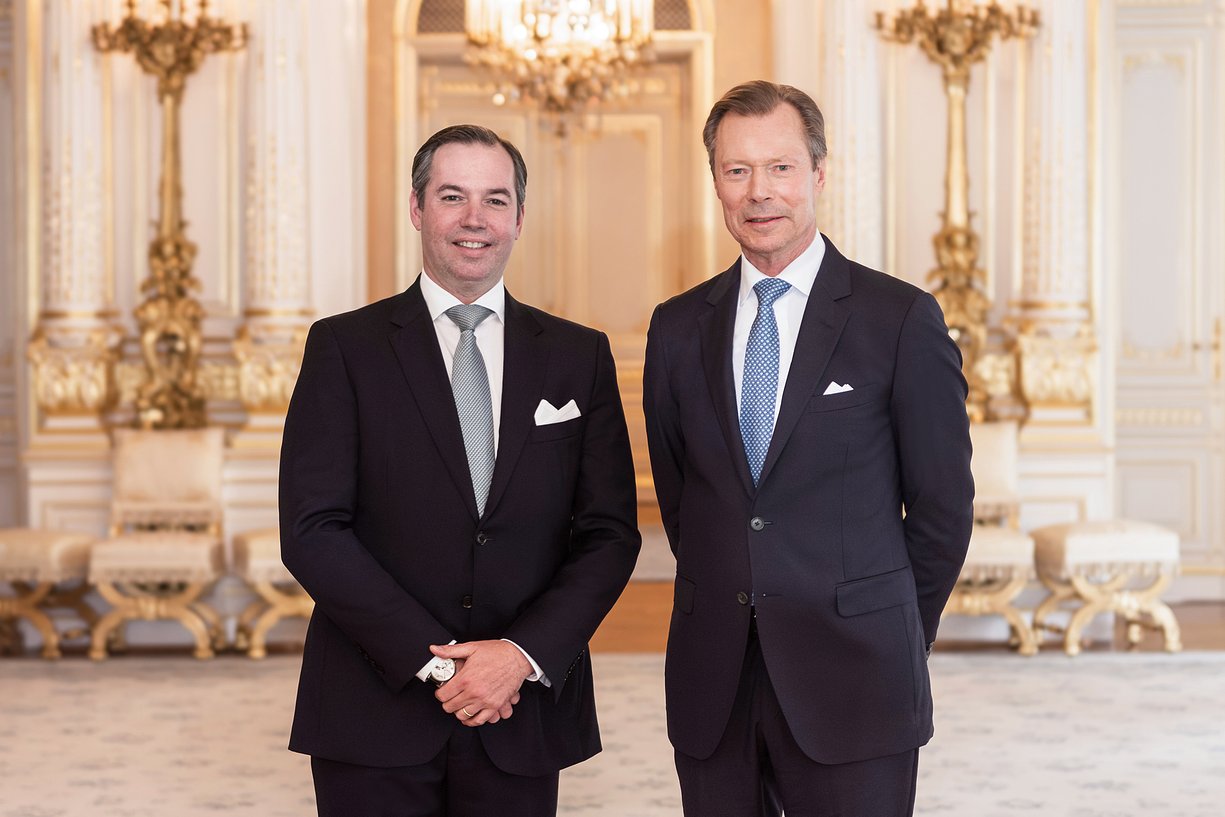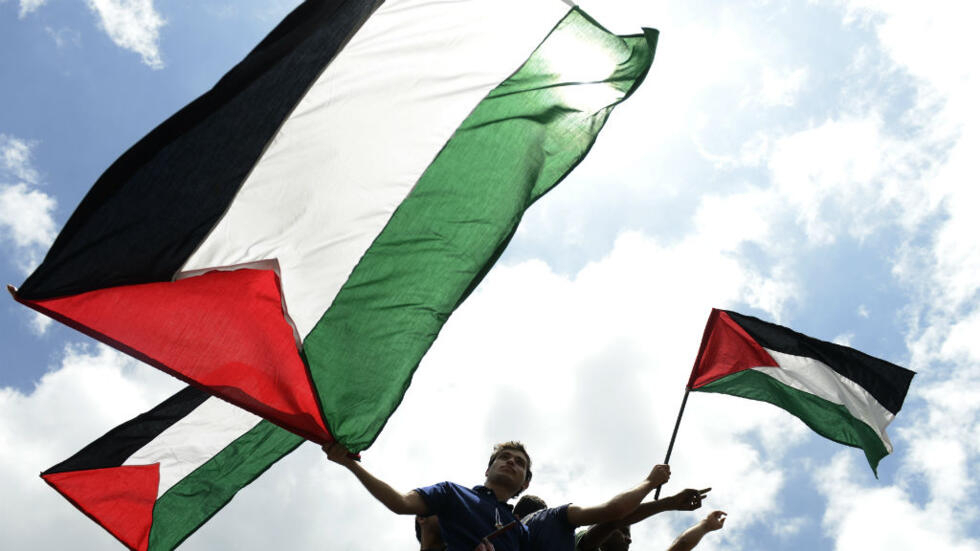Will Iranians Living in Luxembourg Participate in the Presidential Elections?

Luxembourg - June 27, 2024
In the wake of the sudden death of Ebrahim Raisi, the President of Iran, an emergency presidential election is set to be held on June 28. However, this election has faced severe criticism and a boycott by many opponents of the Islamic Republic, labeling it a "sham election."
A Staged and Engineered Election
Critics argue that this election is merely a pre-planned show with no real democracy involved. All candidates have been selected by the Guardian Council, which is directly controlled by Ali Khamenei. Consequently, this election cannot reflect the true will of the Iranian people and serves only as a tool to perpetuate Khamenei's dictatorship.
The election is taking place under dire human rights conditions in Iran. According to international reports, the number of executions dramatically increased in 2023, reaching 853 cases, including the execution of children and ethnic minorities. These executions often occur without fair trials and are frequently based on confessions obtained under torture.
Following Raisi's death, Iranian security forces have intensified their crackdown on dissenters and activists. Political activists, journalists, and protest participants have faced severe pressure and torture to prevent any opposition to the election. This crackdown aims to create an atmosphere of fear and intimidation within society.
In addition to human rights issues, Iran is grappling with a severe economic crisis. High inflation, widespread unemployment, and the devaluation of the national currency have made life extremely difficult for the populace. Raisi's administration failed to deliver on its promises to improve the economic situation, leading to increased public discontent.
Call to Boycott the Election
In response to these conditions, many student groups, trade unions, and civil activists within Iran have called for a boycott of the election. They believe that participating in the election would only legitimize the Islamic Republic and would not bring about any real change. According to them, elections in the Islamic Republic are merely tools to maintain the religious dictatorship and suppress the people.
Will Iranians Living in Luxembourg Participate in the Presidential Elections?
Opponents of the Islamic Republic, including Iranians residing in Luxembourg, believe that only through a widespread boycott of the election and continued protests can fundamental changes be achieved. This situation highlights the regime's legitimacy crisis and the deep dissatisfaction of the people with the current state of affairs. Given these circumstances, the upcoming election faces significant challenges, with many Iranians both inside and outside the country believing that boycotting the election is an effective way to protest the current situation.
Meanwhile, according to unofficial reports, a group of Iranians living in Luxembourg and Belgium plan to spontaneously gather on June 28, 2024, in front of the Iranian Embassy in Brussels, Belgium. This gathering aims to express their disdain for the Islamic Republic and to encourage Iranians to abstain from participating in what they deem a sham election.
Also read : Boycotting Elections: A Civil Tool to Counter Tyranny in Iran ...
Surge in Dengue Cases in Luxembourg: A Growing Concern

Luxembourg - June 27, 2024
Luxembourg is grappling with an alarming rise in dengue fever cases as the invasive Asian tiger mosquito (Aedes albopictus) establishes its presence in the regions of Roeser and Mamer. This development marks a significant public health challenge for the nation.
The Spread of a Notorious Vector
The European Centre for Disease Prevention and Control (ECDC) has verified the presence of Aedes albopictus, a mosquito infamous for transmitting dengue, chikungunya, and Zika viruses. This mosquito is expanding its territory across Europe, now maintaining self-sustaining populations in 13 EU countries.
Dengue Cases on the Rise
Luxembourg saw a stark increase in dengue cases, jumping from just two cases in 2022 to 10 in the past year. Dengue typically presents with symptoms such as high fever and severe joint pain. Most of the affected individuals had recently traveled to countries like Vietnam, India, Mexico, or Ivory Coast. The average age of those infected was 35, highlighting a diverse demographic at risk.
European Context
The situation mirrors broader trends in Europe. In 2023, there were 130 locally transmitted dengue cases across the EU and EEA countries, including Iceland, Liechtenstein, and Norway. This figure represents a substantial rise from the 71 cases documented in 2022.
Status of Chikungunya and Zika
Fortunately, Luxembourg has not yet reported any cases of chikungunya or Zika virus infections, offering a small respite amidst the growing concern over dengue.
Proactive Prevention: A Call to Action
In light of the increasing dengue threat and the presence of the Asian tiger mosquito, Luxembourg's health authorities are urging citizens to adopt robust preventive measures. These include using mosquito nets, wearing long-sleeved clothing, and applying insect repellents to reduce the risk of mosquito bites. Public awareness and community engagement are critical in curbing the spread of this disease.
Grand Duke of Luxembourg to Transfer Power to His Son

Luxembourg - June 27, 2024
In a surprising announcement during Luxembourg's National Day celebrations last week at the Philharmonie, Grand Duke Henri revealed his intention to transfer power to his son, Prince Guillaume, in October.
During the national ceremony, Grand Duke Henri stated, "I wish to inform you that I have decided to transfer power to Prince Guillaume in October. With all my love and trust, I wholeheartedly wish him success." This unexpected announcement, delivered during his traditional speech, was met with enthusiastic applause and cheers from the audience.
Establishment of the Lieutenant-Representative Role
In Luxembourg, when a Grand Duke decides to delegate some of his powers to his successor, the role of "Lieutenant-Representative" is created. At 69 years old, Grand Duke Henri has decided to pass on this role to Prince Guillaume starting in October. Before assuming his new duties, Prince Guillaume must take an oath as required by Article 58 of the new constitution.
Historical Context of Power Transfers in Luxembourg
The process of power transfer in Luxembourg has varied in duration. The first such delegation occurred on February 5, 1850, when Prince Henry of the Netherlands took over from his brother, Grand Duke William III, and lasted nearly 30 years. Other notable transfers include Grand Duke Adolphe's delegation to his son William IV on April 4, 1902, and Grand Duke Jean's transfer to Grand Duchess Charlotte on April 28, 1961. The most recent transition was from Grand Duke Jean to Grand Duke Henri, which lasted from March 3, 1998, to October 7, 2000, culminating in Henri's ascension to the throne.
Implications of the Power Transfer
Prince Guillaume's upcoming role as Lieutenant-Representative signifies a crucial moment in Luxembourg's history, representing both continuity and evolution within the monarchy. This transfer of power is not a complete abdication; Grand Duke Henri remains the head of state and retains the authority to reclaim his powers or adjust the scope of the Lieutenant-Representative's duties at any time. This flexible arrangement can be temporary or permanent, based on the needs and circumstances.
Clarifying the Role: What Does the Transfer Mean?
Grand Duke Henri's announcement to transfer power to Prince Guillaume as a Lieutenant-Representative raises questions about its significance and how it differs from a full abdication.
Understanding the Lieutenant-Representative Role
The position of Lieutenant-Representative is assigned to a prince or princess from the royal family who must reside within the duchy and take an oath of loyalty to the constitution before commencing duties. This role allows the Grand Duke to delegate some of his powers while still maintaining his status as the head of state. The Lieutenant-Representative's responsibilities can be adjusted, offering a balance between continuity and gradual transition.
As Prince Guillaume prepares to take on his new responsibilities, he is set to play a pivotal role in managing the duchy. This transition not only marks an important chapter in Luxembourg's history but also underscores the royal family's commitment to stability and organized power transfer.
In conclusion, Prince Guillaume will assume significant responsibilities and powers as Lieutenant-Representative, yet Grand Duke Henri will remain the head of state. The timing for a complete abdication and transfer of the throne will be determined in the future, reflecting the monarchy's adaptable and enduring nature.
François Bausch Retires: Djuna Bernard to Succeed Him in the Chamber of Deputies

Luxembourg - June 27, 2024
François Bausch, a prominent politician from the Green Party (déi gréng), is stepping down after 35 years of service. Djuna Bernard, a young and dynamic member of the same party, will replace him in the Chamber of Deputies.
Surprise Announcement
In an unexpected announcement, François Bausch, the former Minister of Transport and current representative of déi gréng, declared his resignation. He stated that "the time has come" to pave the way for the younger generation. Bausch communicated his decision in writing to Claude Wiseler, President of the Chamber of Deputies, on June 25. His final parliamentary session will be held on July 10.
A Distinguished Political Career
Throughout his career, François Bausch has held numerous key positions. As Minister of Transport for a decade, he made significant impacts on Luxembourg's transportation infrastructure and also served as Minister of Defense during his tenure. Bausch was a pivotal figure in the previous coalition government led by Xavier Bettel, where he served as Deputy Prime Minister and was recognized as a major political figure.
Post-Election Changes
Following the disappointing results for the Green Party in the recent elections, where they secured only 8.5% of the votes and four seats in the Chamber of Deputies, Bausch joined the opposition ranks. Despite this, he decided it was time to pursue a new path and allow the younger generation to enter the political arena.
Djuna Bernard: The New Representative
Djuna Bernard, known as one of the vibrant and energetic faces of déi gréng, will succeed Bausch in the Chamber of Deputies. Bernard, with her fresh perspectives and enthusiasm for change, is poised to take on her new responsibilities and be an effective representative for Luxembourg.
Ettelbruck Agricultural Fair: A Unique Experience for All

Luxembourg - June 27, 2024
With great excitement, the 41st edition of the Ettelbruck Agricultural Fair will be held from July 5 to 7 at its traditional location in Däichwisen. As the largest agricultural fair in Luxembourg, this event features 350 exhibitors and offers a unique opportunity for all those interested in agriculture, local foods, and sustainability.
Special Highlights:
Visit by Crown Prince Guillaume: Next Friday
Amateur Chef of the Year Competition: Throughout the weekend
Opportunities:
Meet local producers and learn firsthand about the processes behind high-quality product creation.
Agricultural high school students can benefit from this opportunity to network with industry professionals and explore potential internships on farms.
According to the organizers, the Ettelbruck Agricultural Fair is recognized as the largest anti-food waste event in the Grand Duchy of Luxembourg.
Visiting Hours:
Friday to Sunday, from 9 AM to 7 PM
Official opening ceremony: Friday, July 5 at 4 PM with the Minister of Agriculture in attendance.
For more information, visit www.fae.lu .
Xavier Bettel Pursues a "Luxembourg Solution" for Recognizing Palestine

